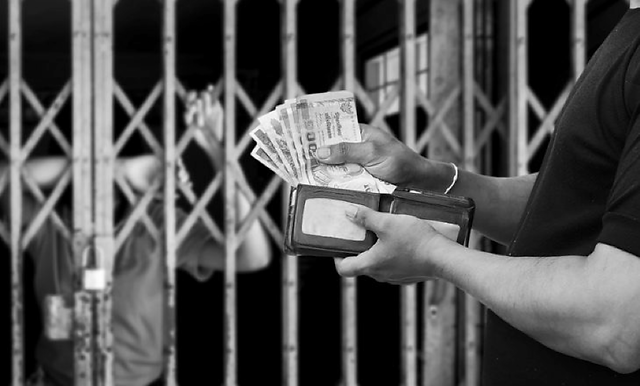Dear Beamers,
Greetings! Despite a marginal decline in recent years, the issue of human trafficking in our nation appears to be experiencing a significant resurgence, particularly amidst economic hardships. This trend, albeit gradual, poses a substantial challenge to the livelihoods of Nigerians, who struggle to meet their immediate needs with an uncertain future. The implications of human trafficking are profound, impacting victims and their families profoundly. Therefore, in this newsletter, we aim to shed light on the prevalence of human trafficking in Nigeria in recent times..
Human trafficking is a longstanding criminal activity that exploits individuals for financial gain. Victims of this crime span various age groups and are subjected to different forms of exploitation, primarily involving sexual exploitation and forced labor. As a result, a significant proportion of human trafficking victims are teenagers or young adults, as their youth and vigor make them particularly valuable for these illicit and harmful purposes. In many instances, female children within this age bracket exhibit greater susceptibility to attacks in comparison to their male counterparts. Children, in general, are particularly at risk of exploitation, including scenarios involving forced marriage, involvement in armed conflicts, and engagement in commercial sexual activities, due to their heightened susceptibility to manipulation and abuse.
“In reality, victims of trafficking are often traded and exploited as slaves across various sectors, spanning from domestic labor, agriculture, mining, fishing, and factory work to commercial sex work. They can be coerced into forced marriages or conscripted into armed conflict. The underlying concept is to acquire them against their will for illegal purposes, or sometimes as bargaining chips to extort exorbitant ransoms in exchange for their release.” Says Ajose Princess
Human trafficking can be succinctly described as a contemporary form of slavery, characterized by the illicit trade of individuals for purposes of exploitation or financial gain. It encompasses activities such as transportation, transfer, harboring, or receipt of individuals through coercion, fraud, or deception, with the intent of exploiting them for profit. Regrettably, human trafficking remains a prevalent criminal enterprise in Nigeria, deeply ingrained within certain cultural and societal norms. Many instances of rescued victims of human trafficking have been traced back to uninhabitable regions within forests or underdeveloped communities in Nigeria, which serve as pivotal transit points and destinations.
Human trafficking extends beyond mere abduction; it frequently originates from coercive situations like indebtedness, leading to debt bondage. This exploitative practice ensnares individuals into forced labor to repay debts, often evolving into trafficking even after debt settlement. Cultural norms that devalue the humanity of individuals play a pivotal role in perpetuating human trafficking by rendering them vulnerable to exploitation. When individuals are stripped of their rights and dignity, they become prime targets for traffickers, exacerbating the cycle of exploitation.
Various motivations prompt individuals to engage in human trafficking. Among them, poverty stands out as a major catalyst for this illicit activity. In times of societal upheaval, such as economic distress, individuals may resort to trafficking as a last-ditch effort to survive. Moreover, conflict exacerbates this situation, fostering an environment where traffickers exploit the chaos to operate with impunity. Rationalizing their actions, traffickers often cite the absence of viable legal avenues for employment or migration, thus justifying their exploitation of others.

According to Lere Fikayomi, a practicing lawyer, poverty serves as a primary motivator for individuals engaging in human trafficking activities. He emphasizes that,
“Nobody in their right mind desires to engage in trafficking or become a victim of exploitation, but the absence of viable economic opportunities can push individuals into perilous circumstances. When faced with limited options, people are more inclined to take risks. Factors such as inflation, political changes, or unforeseen events can exacerbate unemployment rates, particularly among vulnerable demographics like women and young workers, who are already susceptible to trafficking.
He added, “Seeking improved employment prospects, individuals often resort to migration, unwittingly heightening their vulnerability to traffickers. Furthermore, some individuals resort to desperate measures, such as selling their own family members, including children, either to survive or in the hope of securing a better future for their loved ones.”
Unforeseen events, such as environmental catastrophes or terrorist incidents, can disrupt communities significantly. These incidences result in human displacement, depriving individuals of their homes, education, employment opportunities, and even access to fundamental necessities like water and food. Exploiting these vulnerabilities, traffickers capitalize on the desperation of those affected, often masquerading as aid providers or authoritative figures. In these dire circumstances, victims seeking refuge may unwittingly fall into the traps set by their predators.
No individual willingly desires to become a victim of trafficking; hence, traffickers employ an array of manipulative tactics targeting vulnerable populations. Similar to other sectors requiring advancement to foster growth, traffickers strategically assemble teams of experts to conceal their nefarious activities and mitigate the risk of detection by law enforcement professionals. Deception plays a pivotal role in their schemes, allowing them to orchestrate their exploitative endeavors under the guise of providing assistance to those in dire circumstances. Such circumstances may not always entail immediate danger but can encompass aspirations for a better life and improved opportunities.
According to Arabambi Smith, a human right activist,
“No one wants to end up trafficked, so traffickers resort to various tactics to manipulate and intimidate vulnerable individuals. Deception is their go-to strategy. Some trafficking networks pose as legitimate recruitment agencies, targeting migrants seeking work abroad. They lie about fees, documents, transportation, and more. Once victims secure employment, these networks often steal their wages. Additionally, these “agencies” frequently misrepresent job roles, especially to women. Despite promises of domestic work like childcare or housekeeping, women and girls may find themselves forced into commercial sex.”
Josephine Madago shares a perspective complementary to Smith’s, asserting that amidst the dire circumstances in Nigeria, some migrants inadvertently find themselves in the company of unscrupulous individuals, commonly referred to as smugglers, in their desperate attempts to escape hardship. She contends that,
“These smugglers aren’t always just smugglers; sometimes they cross into trafficking territory. When migrants agree to pay for their services, things can take a dark turn. The smuggler might demand more money than agreed upon, exploit them sexually, or even sell them off. Going down this path of relocation offers no guarantees, especially if it’s the wrong route. Seeking a better life in another country is risky business, filled with danger and unknowns.”
Reports indicate that migrants are detained at various stages of their journey, often spending several weeks to months in detention camps before being forced onto unseaworthy dinghies or boats destined for the Mediterranean Sea. This perilous ordeal poses a grave risk to their survival, an option that should not even be entertained, given the life-threatening dangers it entails. Tragically, survivors are reduced to commodities for financial profit, subjected to debt bondage, extreme abuse, starvation, torture, and exposure to sexually transmitted diseases, either en route to their intended destination or upon deportation back to Nigeria.

Inadequate education exacerbates the vulnerability of Nigerians to trafficking. A lack of quality education not only detrimentally affects individuals but also reverberates throughout their families, including the prospects of their children. Access to quality education equips individuals with the skills necessary for better employment opportunities and shields them from exploitative conditions. It fosters a proactive pursuit of opportunities aligned with their abilities and knowledge, rather than resorting to illicit means to circumvent established norms. Such empowerment discourages the consideration or toleration of human trafficking as a viable option.
This piece underscores that the cessation of trafficking hinges upon the restoration of human dignity, a process necessitating concerted efforts from governments, empowered communities, and accessible pathways for individuals. Urgent action is imperative for authorities to establish dedicated agencies in collaboration with international organizations, offering training and specialized technical support to security personnel across different sectors to effectively identify, investigate, and prosecute instances of trafficking. Moreover, efforts aimed at stabilizing economies and fostering economic development are crucial in providing individuals with viable and legitimate economic avenues, thereby reducing the likelihood of desperation-induced involvement in precarious situations.
The Nigerian government should establish binding agreements with international entities to effectively address activities perpetuating human trafficking and illegal immigration. This initiative is vital for enhancing legal migration channels, curbing unsafe migration and human trafficking, and fostering international protection and assistance for internally displaced persons.
Combatting human trafficking, irrespective of its form or severity, necessitates an interdisciplinary approach integrating human rights principles, cognitive and behavioral restructuring techniques, and strategies for economic development. Consequently, ensuring universal access for every Nigerian to a dignified life marked by cherished human rights is imperative.




